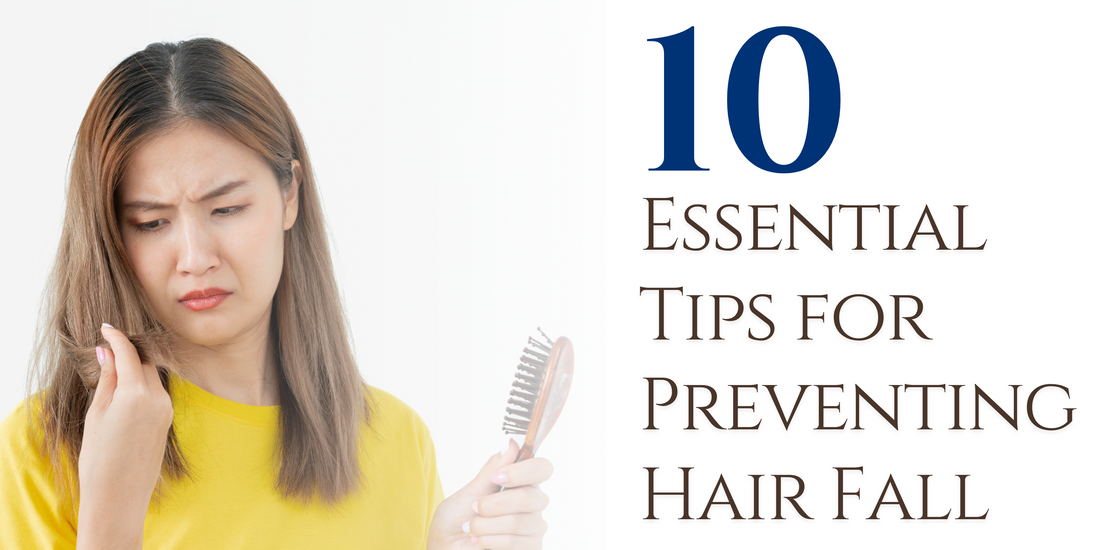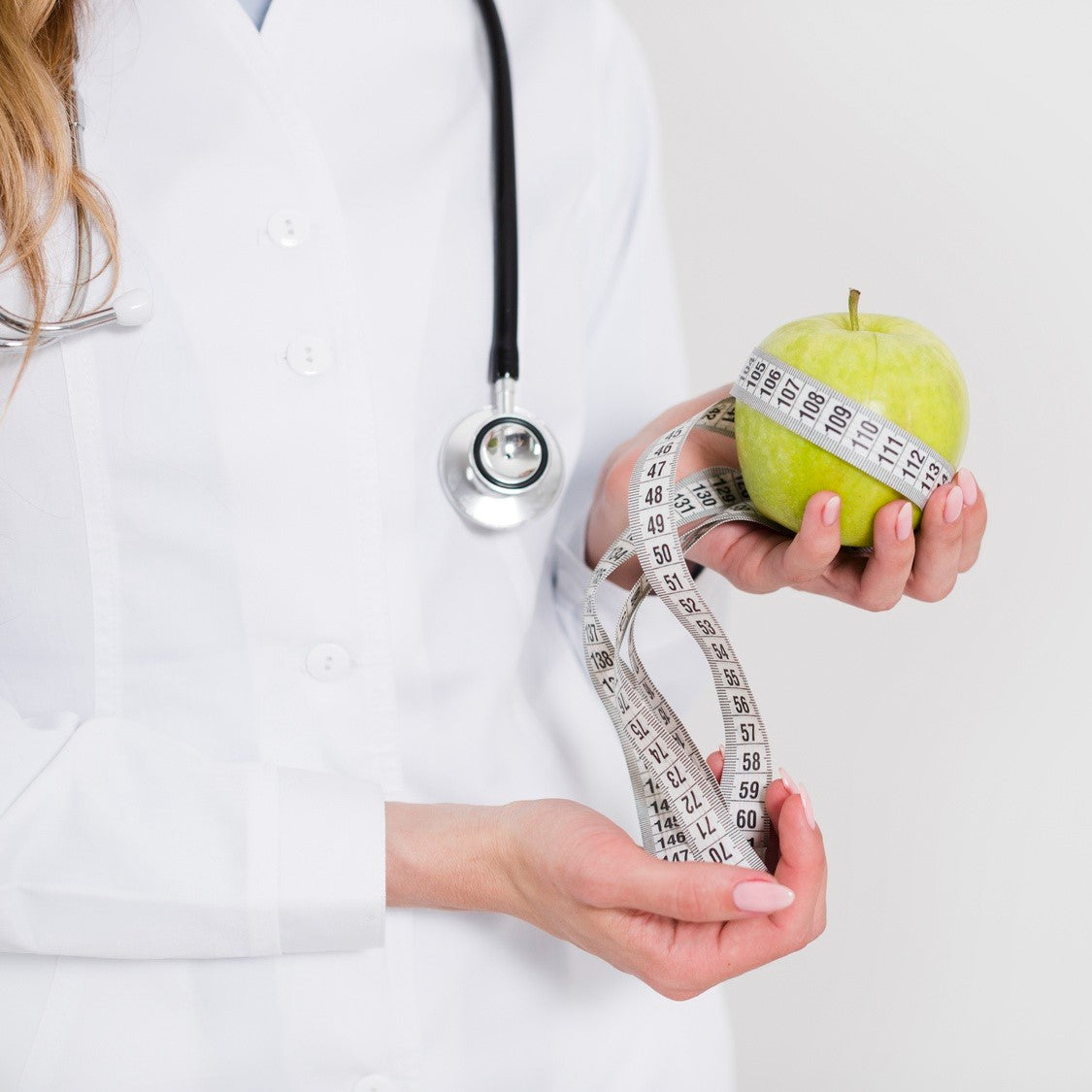
10 Essential Tips for Preventing Hair Fall
Million's SmileShare
Introduction
Hair fall is a common concern that affects both men and women. From stress and environmental factors to hormonal imbalances and poor hair care routines, many things can contribute to hair loss. While it’s natural to lose some hair each day, excessive hair fall can lead to thinning and hair damage if not addressed. The good news is, there are steps you can take to protect your hair and minimize shedding. In this blog, we’ll cover 10 essential tips to help you prevent hair fall and maintain healthy, strong hair.
1. Maintain a Balanced Diet
Nourish Your Hair from the Inside Out
A balanced, nutrient-rich diet is vital for promoting healthy hair growth and reducing hair fall. Your hair needs vitamins, minerals, and proteins to stay strong and shiny.
-
Protein: Hair is primarily made up of a protein called keratin, so it's essential to include protein-rich foods like eggs, lean meats, fish, and legumes in your diet.
-
Vitamins: Biotin, Vitamin E, Vitamin C, and Vitamin A play a crucial role in hair health. Include foods like leafy greens, berries, nuts, and avocados.
-
Iron and Zinc: These minerals help in maintaining healthy hair follicles. Include spinach, pumpkin seeds, and whole grains in your diet.
-
Tip: Drink plenty of water to keep your hair hydrated and support nutrient absorption.
2. Use Gentle Hair Care Products
Avoid Harsh Chemicals
The hair products you use can have a significant impact on the health of your scalp and hair. Harsh shampoos, conditioners, and styling products can strip your hair of its natural oils, leading to dryness and breakage.
-
Look for Sulfate-Free Products: Sulfates are harsh cleaning agents found in many shampoos. Opt for sulfate-free products to prevent scalp irritation and excessive dryness.
-
Choose Nourishing Ingredients: Hair care products with natural oils, such as argan oil, coconut oil, and jojoba oil, help nourish and protect your hair.
-
Limit Heat and Chemical Treatments: Excessive use of hair dyes, bleaches, and heat styling tools can damage hair cuticles and cause hair to become brittle.
-
Tip: Always read the ingredient list and choose products that are free from parabens and synthetic fragrances, as they can harm your hair over time.
3. Avoid Over-Washing Your Hair
Let Your Scalp’s Natural Oils Work
Washing your hair too frequently can strip away the natural oils that protect and nourish your scalp and hair. This can lead to dryness, scalp irritation, and eventually, hair fall.
-
Wash 2-3 Times Per Week: Washing your hair every day is not necessary unless your scalp is oily. Washing two to three times per week allows your scalp's natural oils to condition your hair.
-
Use Lukewarm Water: Hot water can dry out your scalp and weaken your hair, so always wash your hair with lukewarm water.
-
Tip: If your scalp tends to get oily quickly, use a dry shampoo in between washes to absorb excess oil and maintain a fresh look.
4. Handle Wet Hair with Care
Prevent Breakage After Washing
Your hair is most vulnerable when it’s wet. The moisture makes the hair strands weaker, making them more prone to breakage if handled roughly.
-
Avoid Rubbing with a Towel: Gently pat your hair dry with a soft towel instead of rubbing it, which can cause breakage and split ends.
-
Use a Wide-Tooth Comb: After washing your hair, use a wide-tooth comb to detangle it while it's still damp. This reduces the risk of breakage and minimizes stress on the hair strands.
-
Tip: Apply a leave-in conditioner or detangling spray to make combing through wet hair easier.
5. Reduce Heat Styling
Limit the Use of Hot Tools
Frequent use of heat-styling tools like straighteners, curling irons, and blow dryers can cause significant damage to your hair. Heat weakens the hair shaft, leading to hair fall and thinning over time.
-
Air-Dry Whenever Possible: Let your hair dry naturally to reduce heat exposure.
-
Use Heat Protectant: If you must use heat-styling tools, always apply a heat protectant spray or serum to minimize damage.
-
Lower the Heat Setting: Use the lowest heat setting possible when styling your hair.
-
Tip: Try heat-free styling techniques like braiding or using hair rollers to create curls or waves.
6. Manage Stress Effectively
Reduce Stress for Better Hair Health
Stress is a major contributor to hair fall, as it can disrupt the hair growth cycle. Managing stress is essential to maintaining healthy hair and preventing excessive shedding.
-
Practice Relaxation Techniques: Incorporate activities like meditation, yoga, and deep breathing exercises into your daily routine to reduce stress.
-
Get Enough Sleep: Ensure you get 7-9 hours of restful sleep each night to support your body’s natural recovery processes.
-
Tip: Consider journaling or talking to a counselor to manage emotional stress and improve your overall well-being.
7. Massage Your Scalp Regularly
Stimulate Blood Flow for Healthy Hair Growth
Massaging your scalp regularly promotes blood circulation to the hair follicles, encouraging healthy hair growth and reducing hair fall.
-
Use Natural Oils: Massaging your scalp with nourishing oils like coconut oil, olive oil, or castor oil can strengthen the roots and condition your scalp.
-
Massage Gently: Use your fingertips to massage your scalp in circular motions for 5-10 minutes, 2-3 times a week.
-
Tip: Warm the oil slightly before applying it to improve absorption and relaxation.
8. Protect Your Hair from Environmental Damage
Shield Your Hair from Sun and Pollution
Exposure to UV rays, pollution, and harsh weather conditions can damage your hair, making it more prone to breakage and fall.
-
Cover Your Hair: Wear a hat or scarf when going out in the sun or in windy weather to protect your hair from environmental stressors.
-
Use a Leave-In Conditioner: A leave-in conditioner with UV protection can help shield your hair from the sun’s harmful rays.
-
Tip: Rinse your hair after swimming in chlorinated water or seawater to remove any damaging chemicals or salt.
9. Avoid Tight Hairstyles
Reduce Tension on Hair Follicles
Wearing tight ponytails, buns, or braids can cause excessive tension on your hair follicles, leading to hair fall.
-
Loosen Up: Opt for loose hairstyles that don’t put too much pressure on your hair roots.
-
Use Soft Hair Ties: Choose hair ties made of fabric or other soft materials to minimize hair breakage.
-
Tip: Let your hair down whenever possible to reduce the strain on your hair follicles.
10. Take Hair Supplements if Needed
Boost Hair Health with Essential Nutrients
If your diet is lacking certain nutrients or your hair needs extra care, consider taking supplements that support hair growth.
-
Biotin, Zinc, and Iron: These are commonly recommended supplements for improving hair health.
-
Consult a Doctor: Before taking any supplements, it’s important to consult with a healthcare provider to ensure they’re right for you.
-
Tip: Remember that supplements are only effective when combined with a healthy diet and lifestyle.
Conclusion
Hair fall can be frustrating, but with the right care and preventive measures, you can keep your hair healthy, strong, and beautiful. From maintaining a balanced diet to handling your hair with care, these essential tips will help you minimize hair loss and enjoy luscious, resilient hair. By making small adjustments to your daily routine, you can protect your hair and support long-term hair health.
